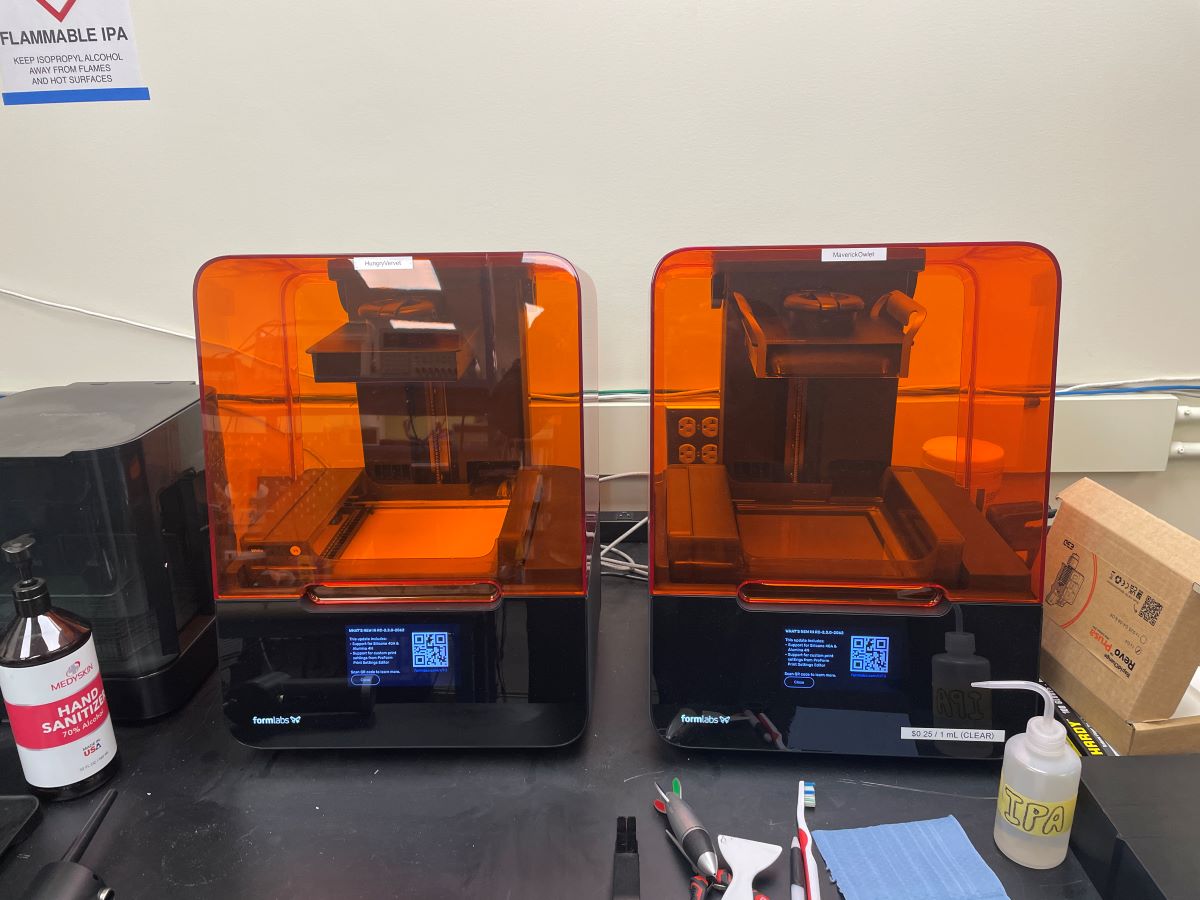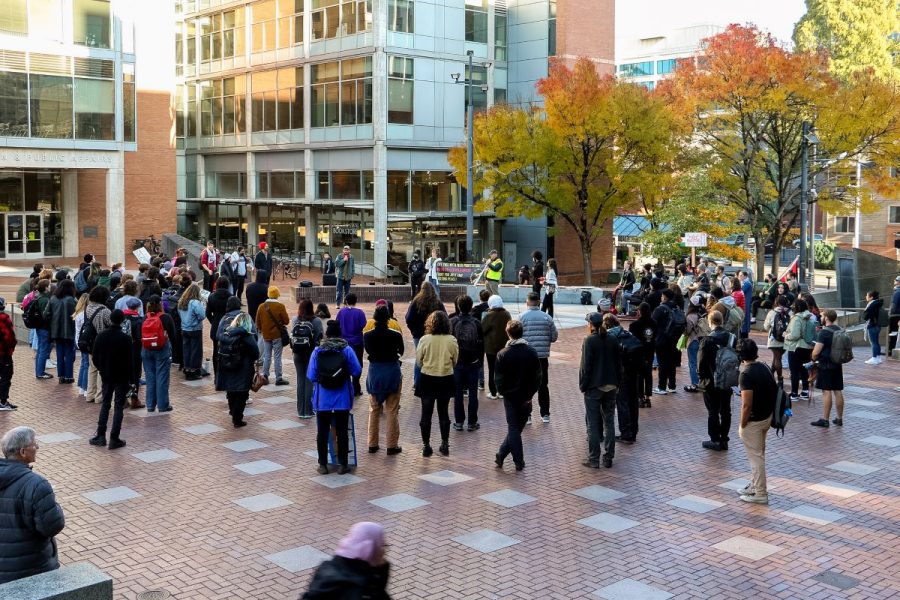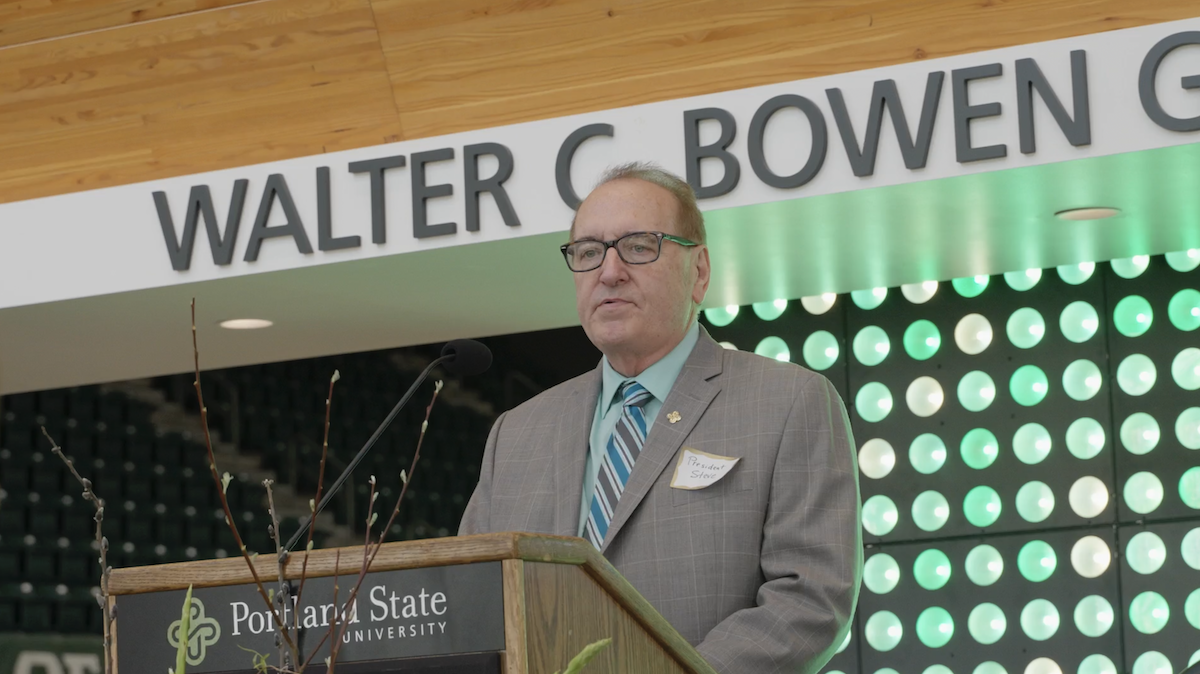In a galaxy not so far away, where ideas are born, molded and brought to life, lies a center of futuristic innovation. Take a journey through laser beams, 3D printing wonders and a sprinkle of Super Nintendo magic to find the quirkiest lab on campus—Portland State’s Electronic Prototyping Lab (EPL).
Edward Ivory—the program manager at EPL—shared the secret behind the lab. “It’s not just a lab; it’s an idea incubator.”
The EPL is a hidden gem that unravels the intricacies of interdisciplinary workspace. It empowers by letting everyone engage in a community-driven environment which thrives on collaboration and knowledge sharing.
At the heart of EPL’s offerings are its 3D printing services, allowing students to turn their concepts into tangible prototypes.
Ivory emphasized the importance of quality prints over speed, highlighting the delicate balance between heat and speed in 3D printing.
“The faster you move that head on the printer, the more heat is spread out, affecting the strength of the printed parts,” Ivory said. “You have only a certain amount of heat that you can add to that plastic before it starts breaking down.”
The lab charges $0.15 per gram for 3D printing, which Ivory said was significantly lower than other alternatives available to students.
The focus is on functional and sturdy prints, ensuring that the projects undertaken are not just aesthetically pleasing but also serve a purpose.
EPL is not just about 3D printing. It offers many state-of-the-art equipment and resources, from laser cutters and circuit board manufacturing to an open workspace with general tools.
Furthermore, the lab is in talks to further expand its capabilities. The lab wants to add a water jet cutter, a powder 3D printer and a plug-and-play CNC milling center.
EPL equips students with the tools to turn their ideas into reality and gives them the space to create.
One student repurposed a Super Nintendo Entertainment System (SNES) controller to function as the controller for operating the lab’s signage board. “It’s not just about building things,” Ivory said. “It’s about building a culture of open innovation.”
In order to provide students with a place to learn and grow, EPL has brought back workshops, such as soldering sessions. These workshops were sparked by the need to reconstruct the lab after it was closed for general usage due to COVID-19 and the previous student managers had graduated, therefore the entire management team had to start from scratch.
Moreover, the EPL team conducts numerous on-demand and immediate workshops to assist students with their creations.
One of the most inspiring aspects of EPL is its impact on students’ academic and professional journeys. Ivory shared success stories of former students securing positions at renowned companies like Intel, SpaceX and United Launch Alliance, attributing their success to the hands-on experience gained at EPL.
One notable example is Nic Redfield, who not only worked at Intel but also brought the EPL concept back to the company, establishing a similar prototyping space. “Nic had convinced his boss what a great resource our lab is, and they had now built a literal copy of PSU’s EPL back in Intel,” Ivory said.
Ivory emphasized the importance of student’s contribution to feedback and encouraged students to share their experiences with the lab. “Students can play a crucial role in promoting the EPL by simply expressing how it has impacted them,” he said. Ivory also invites students to visit the lab, witness its capabilities and actively participate in workshops and projects.
The vision for the EPL is clear—to create a space where students build things and skills that transcend the classroom, preparing them for success in the real world. EPL is a testament to the importance and benefit of the dedication to hands-on learning and innovation.
Students are encouraged to engage as the lab looks forward to potential expansions and enhancements to improve its capacity. Whether you’re a science fiction enthusiast or a tech wizard in the making, EPL welcomes all to join in and create.






